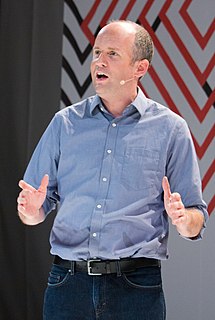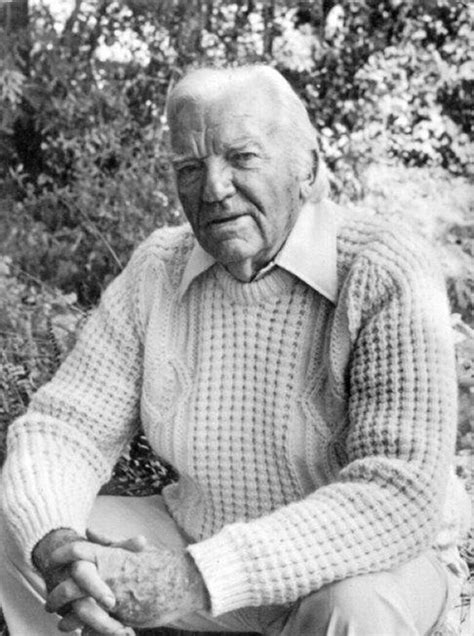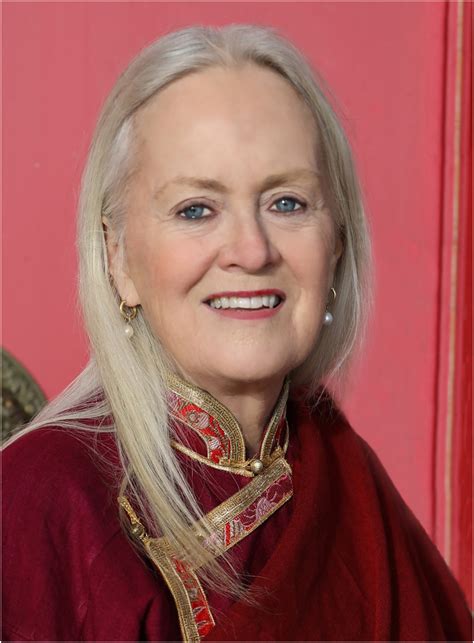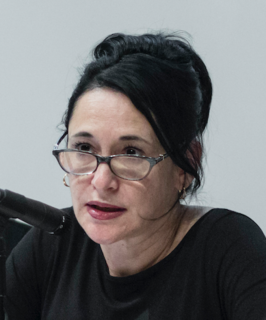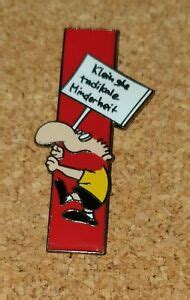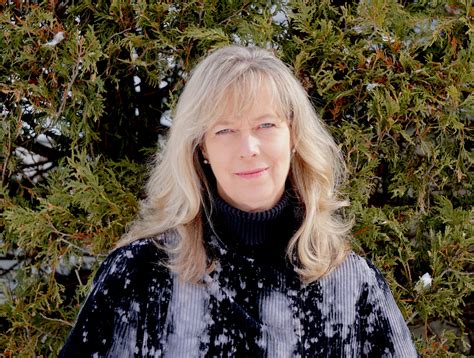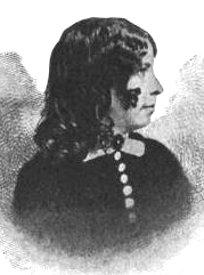Top 1186 Authors Quotes & Sayings - Page 18
Explore popular Authors quotes.
Last updated on April 22, 2025.
Do not write to impress others. Authors who write to impress people have difficulty remaining true to themselves. A better path is to write what pleases you and pray that there are others like you. Your first and most important reader is you. If you write a book that pleases you, at least you know one person will like it.
I don't think that children, if left to themselves, feel that there is an author behind a book, a somebody who wrote it. Grown-ups have fostered this quotient of identity, particularly teachers. Write a letter to your favorite author and so forth. When I was a child I never realized that there were authors behind books. Books were there as living things, with identities of their own.
When you want to be a writer, you think that actually getting published will make you feel somehow more real to yourself. But it doesn't. And nor should it. If publication is the pole around which your entire identity pivots, you're in big trouble. I'd also add that many wonderful books by brilliant authors get ignored or overlooked, and that poor sales aren't (necessarily) a measure of your abilities.
It is illuminating to note, here, how the daily rituals and working routines of prolific authors and artists - people who really do get a lot done - very rarely include techniques for 'getting motivated' or 'feeling inspired'. Quite the opposite: they tend to emphasise the mechanics of the working process, focusing not on generating the right mood, but on accomplishing certain physical actions, regardless of mood.
The annual award of $5,000 goes to an author for a meritorious book published in the previous year for children or young adults. Scott O'Dell established this award to encourage other writers--particularly new authors--to focus on historical fiction. He hoped in this way to increase the interest of young readers in the historical background that has helped to shape their country and their world.
The evidence for our New Testament writings is ever so much greater than the evidence for many writings of classical authors, the authenticity of which no one dreams of questioning. And if the New Testament were a collection of secular writings, their authenticity would generally be regarded as beyond all doubt.
But anyone can write, right?'" Conner asked. "I mean, that's why authors get judged so harshly, isn't it? Because technically everyone could do it if they wanted to." "Just because anyone can do something doesn't mean everyone should," Mrs. Peters said. "Besides, anyone with an Internet connection feels they have the credentials to critique or belittle anything these days.
That the system of morals propounded in the New Testament contained no maxim which had not been previously enunciated, and that some of the most beautiful passages in the apostolic writings are quotations from Pagan authors, is well known to every scholar... To assert that Christianity communicated to man moral truths previously unknown, argues on the part of the asserted either gross ignorance or wilful fraud.
I read everything and anything related to being queer. I found solace in reading authors like Audre Lorde and bell hooks, who would become my activist staples - their words helped me grow up and taught me how to be bold and courageous. By studying them, I came to understand that being young and queer and black would not be easy.
The reason why so few good books are written is, that so few people that can write know anything. In general an author has always lived in a room, has read books, has cultivated science, is acquainted with the style and sentiments of the best authors, but he is out of the way of employing his own eyes and ears. He has nothing to hear and nothing to see. His life is a vacuum.
But it's never just been the journals that have made the difference, I don't think. It's also the way the students are with one another . . . the way they talk about books and authors and themselves. Not just their problems, but their passions too. The way they form a little society and discuss whatever matters to them. Books light the fire-whether it's a book that's already written, or an empty journal that needs to be filled in.
Exasperation with the threefold frustration of action -- the unpredictability of its outcome, the irreversibility of the process, and the anonymity of its authors -- is almost as old as recorded history. It has always been a great temptation, for men of action no less than for men of thought, to find a substitute for action in the hope that the realm of human affairs may escape the haphazardness and moral irresponsibility inherent in a plurality of agents.
My duty as a member of the Council of the Twelve is to protect what is most unique about the LDS church, namely the authority of priesthood, testimony regarding the restoration of the gospel, and the divine mission of the Savior. Everything may be sacrificed in order to maintain the integrity of those essential facts. Thus, if Mormon Enigma reveals information that is detrimental to the reputation of Joseph Smith, then it is necessary to try to limit its influence and that of its authors.
Beyond Words is an exceptionally useful and inspiring digest of Dzogchen (Great Perfection) teachings and the teachers associated with them. The ancient prediction that Dzogchen would benefit many during these degenerate times, makes this comprehensive introduction especially relevant. The authors have made these profound teachings accessible and Beyond Words will be useful to both inexperienced and seasoned readers.
Always tell us where we are. And don't just tell us where something is, make it pay off. Use description of landscape to help you establish the emotional tone of the scene. Keep notes of how other authors establish mood and foreshadow events by describing the world around the character. Look at the openings of Fitzgerald stories, and Graham Greene, they're great at this.
Mann and Joyce are very different, and yet their fiction often appeals to the same people: Harry Levin taught a famous course on Joyce, Proust, and Mann, and Joseph Campbell singled out Joyce and Mann as special favorites. To see them as offering "possibilities for living", as I do, isn't to identify any distinctive commonality. After all, many great authors would fall under that rubric.
It was just as the 1914 War burst on me that I made the discovery that 'legends' depend on the language to which they belong; but a living language depends equally on the 'legends' which it conveys by tradition. ... Volapuk, Esperanto, Ido, Novial, &c &c are dead, far deader than ancient unused languages, because their authors never invented any Esperanto legends.
The fiction I've written and published is certainly inflected by the work of authors I was reading or translating at the time. One of my methods for developing my own voice in fiction, a process I am taking very slowly and deliberately, is through these very intense encounters with certain writers. Strength and power in fiction is being able to resist these intoxicating voices, recognizing that they are the signatures of other writers and not one's own.
In junior high I read a lot of Stephen King, whose Americana approach to writing was often about "the terror next door" and at the same time I was reading a lot of Clive Barker, who was on the other end of the horror pendulum: insidious and disturbingly psychological. I found it fascinating how these two authors came at horror from two totally different perspectives.
A Machine to Make a Future is an insightful and creative contribution to the literature--both scholarly and journalistic--on contemporary genomics. By 'experimenting' with narrative genre, the authors hope to generate different insights into the world of genomics and biotechnology than ones generally presented in existing accounts. They succeed at that goal, providing an account that is ethnographically rich and analytically open to a world whose structure, implications, and outcomes are very much in the making.
I was simply writing out our family stories in my online journal, scratching out what I want to remember, what I was wrestling out with God. Unbeknownst to me, two readers of the posts, both published authors, contacted their agent, Bill Jensen, within 24 hours of each other, encouraging him to drop me a line. Which he did.
Am I in love? Absolutely. I'm in love with ancient philosophers, foreign painters, classic authors, and musicians who have died long ago. I'm a passionate lover. I fawn over these people. I have given them my heart and my soul. The trouble is, I'm unable to love anyone tangible. I have sacrificed a physical bond, for a metaphysical relationship. I am the ultimate idealistic lover.
Every time I put a collection together I'd scrap it because there was no "meaning," until I wrote about the two black men - friends - in the beginning of the book. So much of their experience was ABOUT trying to find friends in the authors/artists I wrote about - subjects that were/are a source of comfort, somehow, since none of them "fit," either
Surrogate fathers and other male figures stepped in to give guidance after my dad died. Businessmen taught me to honor my commitments; others gave me opportunities beyond my wildest imaginations. Authors and speakers set good, solid examples of high standards and lofty goals for me; mature, committed Christians nurtured and instructed me.
I started writing stories at a young age, but not once did it occur to me that I could grow up to be a writer. Who could I look to? My favorite authors were Ann M. Martin and E.L. Konigsburg and Judy Blume, Beverly Cleary and Lois Lowry and Norma Klein. They were all white women, and they seemed so stately to me, so elegant. A whole world away.
In my profession it isn’t a question of telling good literature from bad. Really good literature is seldom appreciated in its own day. The best authors die poor, the bad ones make money — it’s always been like that. What do I, an agent, get out of a literary genius who won’t be discovered for another hundred years? I’ll be dead myself then. Successful incompetents are what I need.
My favourite authors are John Grisham and Jeffrey Archer. Grisham rapidly established himself and now completely owns the legal space of fiction writing, something I want to do in financial space. I like Archer because he keeps his readers engaged: every chapter is a page turner, and he keeps his writing simple.
I wanted to be an artist after all, and my teachers told me these were the best authors the 20th century had to offer. But these books sucked. They were so boring and sloppy and plotless. And Bob Dylan's lyrics seemed nonsensical to me - almost like he had just gotten high and written down whatever random thoughts occurred to him.
I've probably read maybe by now fifteen, twenty books on Matthew. I'd say the authors I like best are an English fellow named Michael Goulder, who taught at the University of Birmingham in England, and he writes about the Jewish background in Matthew's gospel, which is part of what I was just talking about, which is just really thrilling to me.
In fiction, I searched for my favorite authors, women I have trusted to reassure me than not all teenage guys are total ditwads, that the archetype of the noble cute hero who devotes himself to the girl he loves has not gone the way of the rotary phone. That all I had to do was be myself (smart, hardworking, funny) and be patient and kind and he and I would find each other. As Bea would say, this why they call it fiction.
A masterly analysis of how political interests, economic circumstances, development strategies, and local history have shaped what are surprisingly different versions of the welfare state across the developing world. The authors combine fine-grained country analyses with intelligent use of data, and explain and extend the theory and literature on the modern welfare state. The book is both scholarly and readable.
Despite the natural belittling of one's self, the doubts, the insecurities, we have to wake up to the realisation that we all write our own autobiography, we are the authors of our life story. Realising that, write a good story with your life and make sure to write yourself as the protagonist. Be the hero of your journey.
I suppose as long as novels last, and authors aim at interesting their public, there must always be in the story a virtuous and gallant hero; a wicked monster, his opposite; and a pretty girl, who finds a champion. Bravery and virtue conquer beauty; and vice, after seeming to triumph through a certain number of pages, is sure to be discomfited in the last volume, when justice overtakes him, and honest folks come by their own.
The Plagiarism of orators is the art, or an ingenious and easy mode, which some adroitly employ to change, or disguise, all sorts of speeches of their own composition, or that of other authors, for their pleasure, or their utility; in such a manner that it becomes impossible even for the author himself to recognise his own work, his own genius, and his own style, so skilfully shall the whole be disguised.
It is the fate of most men who mingle with the world, and attain even the prime of life, to make many real friends, and lose them in the course of nature. It is the fate of all authors or chroniclers to create imaginary friends, and lose them in the course of art. Nor is this the full extent of their misfortunes; for they are required to furnish an account of them besides.
Most novels put out by small or corporate presses don't really sell that well - usually a thousand copies or so. Working with a small press, you have to be willing to book reading tours, plan events, make contacts with other small press authors, and find new ways of getting word about your new work out there.
Many people seem to think that art is a luxury to be imported and tacked on to life. Art springs out of the very stuff that life is made of. Most of our young authors start to write a story and make a few observations from nature to add local color. The results are invariably false and hollow. Art must spring out of the fullness and richness of life.
I wish that one would be persuaded that psychological experiments, especially those on the complex functions, are not improved [by large studies]; the statistical method gives only mediocre results; some recent examples demonstrate that. The American authors, who love to do things big, often publish experiments that have been conducted on hundreds and thousands of people; they instinctively obey the prejudice that the persuasiveness of a work is proportional to the number of observations. This is only an illusion.
There are some authors who contend that meanings and values are "nothing but defense mechanisms, reaction formations and sublimations." But as for myself, I would not be willing to live merely for the sake of my "defense mechanisms," nor would I be ready to die merely for the sake of my "reaction formations.
Once you get past the grand normative claims made in the West for literature, especially the novel, in the post-Christian era - that it is a secular substitute for religion, hallmark of modern civilization, a priori liberal and cosmopolitan, with authors appearing to implicitly embody such pious ideals - you encounter a less agreeable reality: parochialism, blinkered views, even racial prejudices of the kind the bourgeoisie have held everywhere.
Among the English authors, Shakespeare has incomparably excelled all others. That noble extravagance of fancy, which he had in so great perfection, thoroughly qualified him to touch the weak, superstitious part of his readers' imagination, and made him capable of succeeding where he had nothing to support him besides the strength of his own genius.
There are two generic and invariable features that characterize utopias. One is the content: the authors of utopias paint what they consider to be ideal societies; translating this into the language of mathematics, we might say that utopias bear a + sign. The other feature, organically growing out of the content, is to be found in the form: a utopia is always static; it is always descriptive and has no, of almost no, plot dynamics.
I, too, am deeply concerned with an overarching idea that dramaturgs are now authors . . .. I am not taking the position that all dramaturgs own copyright, deserve special billing credit, or should receive remuneration akin to that of the playwright. I know from my ears at the Dramatists Guild that almost everyone a writer encounters has suggestions of how to write and rewrite the play or musical to make it work.
By now, it is probably very late at night, and you have stayed up to read this book when you should have gone to sleep. If this is the case, then I commend you for falling into my trap. It is a writer's greatest pleasure to hear that someone was kept up until the unholy hours of the morning reading one of his books. It goes back to authors being terrible people who delight in the suffering of others. Plus, we get a kickback from the caffeine industry.
Authors, she soon decided, were probably best met within the pages of their novels, and were as much creatures of the reader's imagination as the characters in their books. Nor did they seem to think one had done them a kindness by reading their writings. Rather they had done one the kindness by writing them.
The reason some crime writers have a chip on their shoulder about the label is because their good books are shelved beside books about nuns and birdwatchers and cats who solve crimes. Overseas, my books are reviewed alongside those of authors like Robert Stone and Don DeLillo, and I have to live and die by that comparison. They don't ghettoize crime writers in other countries, and of course they shouldn't.
Few of those who fill the world with books, have any pretensions to the hope either of pleasing or instructing. They have often no other task than to lay two books before them, out of which they compile a third, without any new material of their own, and with very little application of judgment to those which former authors have supplied.
I'm always intrigued by authors who say, 'This book took 17 drafts.' They're very clear about it. I couldn't possibly count the number of times... So many of these stories I worked on for a very long time and wrote them, set them aside, rewrote them, worked on something else - they were never far from reach; they informed each other.
A tactic used by authors of virtually every single book I've ever read that propounds a conspiracy theory is to attack an agency as being part of a conspiracy in the Kennedy assassination, but when this same agency comes up with something favorable to the author's position, the author will cite that same agency as credible support for his argument.
The war between authors and publishers has been a conflict of ages. On the one side, the publisher has been looked upon as a species of Wantley dragon, whose daily food was the brain and blood of hapless writers. ... On the other side, the author has been considered, like Shelley, 'an eternal child,' in all that relates to practical matters, and a terrible child at that, - incapable of comprehending details, and unreasoanably dissatisfied with results.
I've always kind of thought that reviews written by readers for readers are a kind of private space between consumers. It's their right to say anything they like about your material, and authors need to know that and respect that. As for my end, I'm aware of what my sales are, so I know that my books are working in the marketplace, at least for now, and beyond that, I have to just do my thing and stay focused.
I find it interesting that people often seem to believe that authors of realistic fiction are directly translating their personal experiences into their work. The fact is that telling a story is a transformative experience. There is rarely a one-to-one translation onto the page unless you're writing memoir, and even then, memory is unreliable. I think that the best books feel emotionally true, and that truth has to be rooted in real-world experience.
Books are the treasured wealth of the world and the fit inheritance of generations and nations. Books, the oldest and the best, stand naturally and rightfully on the shelves of every cottage. They have no cause of their own to plead, but while they enlighten and sustain the reader his common sense will not refuse them. Their authors are a natural and irresistible aristocracy in every society, and, more than kings or emperors, exert an influence on mankind.
It looks as if there were a single ultimate goal for mankind, a far goal toward which all persons strive. This is called variously by different authors self-actualization, self-realization, integration, psychological health, individuation, autonomy, creativity, productivity, but they all agree that this amounts to realizing the potentialities of the person, that is to say, becoming fully human, everything that person can be.
I always thought books were just the canon, things I couldn't identify with. And then I was introduced to really amazing multicultural literature - it was all things I was trying to do unsuccessfully in my poetry. It really just changed everything. I was introduced to authors like Sandra Cisneros, Gabriel García Márquez, Junot Díaz, and a lot of African American literature, as well.



